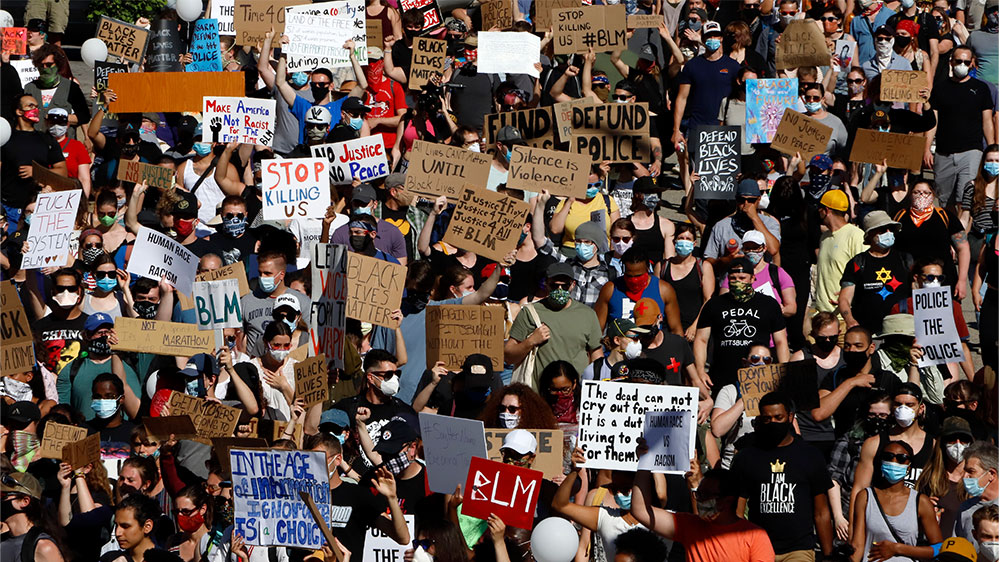
The United States (US) national labour union coalition along with racial and social justice organizations plan to stage a mass walkout on July 20th to highlight racism.
Workers belonging from tens of thousands of fast-food, ride-share, nursing-home and airports in more than 25 US cities are planning to join “Strike for Black Lives”- a full day strike where workers will walk off from their jobs.
The workers who won’t be able to join the strike for a whole day plan to walk out for about eight minutes- the same amount of time a white Minneapolis police officer put his knee on George Floyd’s neck leading to George’s death and the resurgence of anti-racism protests all over the US.
The strike is in remembrance of Black men and women who died recently at the hands of police.
The organizers of all these recent strikes and protests across the US demand stern actions by US corporations and government to come to terms with systemic racism in the US economy that chokes off economic mobility and career opportunities for many Black and Hispanic workers.
Black and Hispanic workers make up the largest portion of the US population earning less than a living wage.
Mary Kay Henry, president of the Service Employees International Union, in an interview with the Associated Press news agency said, “Our members have been on a journey … to understanding why we cannot win economic justice without racial justice. This strike for Black lives is a way to take our members’ understanding about that into the streets”.
The pressure from protest organizers, activists, and civil rights advocates demands the US elected officials at every level to use executive and legislative power to pass laws that guarantee people of all races to thrive, according to a list of demands.
Talking about the “Black Lives Matter Movement”, Ash-Lee Woodard Henderson, co-executive director of Tennessee-based Highlander Research and Education Center & a strike organiser with the Movement for Black Lives, said, “They claim to support Black lives, but their business model functions by exploiting Black labour – passing off pennies as ‘living wages’ and pretending to be shocked when COVID-19 sickens those Black people who make up their essential workers,”
She further said, “Corporate power is a threat to racial justice, and the only way to usher in a new economy is by tackling those forces that aren’t fully committed to dismantling racism,” she said.”
Organizers of “Strike for Black Lives” state that they want to break down a multigenerational cycle of poverty ignited by anti-union and other US policies that make it difficult for racial communities to bargain collectively for better wages and working conditions.
